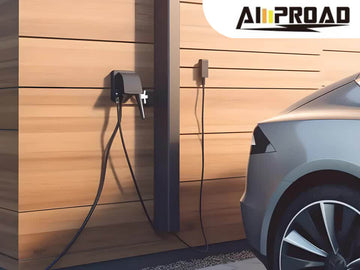
As the year comes to an end, Tesla faces the expiration of its $7,500 federal tax credit for certain models. Specifically, the Model 3 Rear-Wheel Drive and Model 3 Long Range will no longer qualify for this incentive after December 31, 2023. What has led to this change, and how might it impact Tesla's position and the decisions of future EV buyers?

Why Tesla Is Losing Tax Credit Status?
One of the primary reasons behind Tesla's impending loss of tax credit status lies in the shifting dynamics of government incentives for electric vehicles. The $7,500 tax credit was introduced as a stimulus to promote the adoption of cleaner, more sustainable transportation options. However, as the EV market matures and gains wider acceptance, governments may reassess and adjust these incentives.
The availability of electric vehicle credits hinges on complex factors like manufacturing location for vehicles, batteries, and parts. The Treasury Department interprets rules, and the IRS implements them, introducing layers of complexity. Notably, the federal government designates China as a country of concern, impacting how these regulations are applied.
Currently, many car manufacturers, including Tesla, source battery parts from China. Although Tesla is actively shifting battery manufacturing to the U.S., the transition is ongoing. This means that, at present, some Model 3 and Model Y variants won't qualify for the full EV tax credit. The intricacy lies in the fact that these credits depend on where vehicles, batteries, and even individual battery components are manufactured. As the automotive industry evolves, manufacturers are adapting to meet changing regulations, but the intricate interplay between international supply chains and governmental interpretations of rules adds layers of complexity for both carmakers and consumers. The dynamics underscore how the evolving landscape of EV incentives is shaped not only by technological advancements but also by the complex interplay of international trade and government policies.
In December 2023, Tesla's website revealed changes to electric vehicle (EV) tax credits. Starting in 2024, EVs with certain batteries will only qualify for a reduced $3,750 credit. To secure the full $7,500 tax credit, customers must take delivery of eligible Tesla models, such as Model 3 Rear-Wheel Drive and Model 3 Long Range, by December 31, emphasizing the urgency for potential buyers to act before the impending deadline.

The Implications for Tesla and Buyers
Tesla's reputation for innovation extends beyond vehicle technology to encompass charging infrastructure. The company's extensive network of Tesla Destination Charger and Level 2 EVCS reinforces its commitment to providing a seamless charging experience for users. As Tesla progresses, buyers can expect not only advancements in vehicle features but also continual improvements in charging infrastructure, enhancing convenience and accessibility for Tesla owners.
While the loss of tax credit status may influence Tesla's market standing, the company's investment in charging infrastructure serves as a strategic advantage. The widespread availability of Tesla Destination Chargers and Level 2 EV chargers contributes to the overall value proposition for potential buyers. As the industry evolves, Tesla's foresight in developing a comprehensive charging network may mitigate the impact of reduced tax credits, bolstering the brand's appeal and market position.
Amid changing tax credit dynamics, potential electric vehicle buyers should factor in the convenience offered by Tesla's charging infrastructure. The extensive network of Tesla Destination Charger and Level 2 EV charger provides added reassurance for long-distance travel and everyday charging needs. Buyers evaluating their options must weigh the benefits of Tesla's charging infrastructure alongside financial considerations, recognizing the broader spectrum of advantages beyond tax incentives.
In navigating these implications, Tesla's holistic approach to innovation, market positioning, and charging infrastructure underscores its commitment to providing a comprehensive and compelling electric vehicle ownership experience. As the industry evolves, these factors will play a pivotal role in shaping Tesla's position and appeal in the ever-changing landscape of electric mobility.
Related articles:


